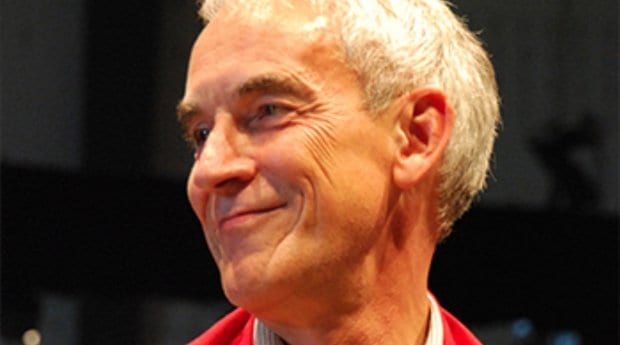United Church Moderator Gary Paterson describes sexuality — including gay sexuality — as a gift from God.
“First of all let’s back up and say it’s not sin,” he says. “But somewhere the church built up a reputation as being anti-body and anti-sex. And when you look at the history I can understand how that can be deserved, but it is not true to our deep biblical verses.”
From July 24–26, 2015, Paterson’s home congregation of St Andrew’s-Wesley United Church will kick off Pride Week in Vancouver with SpiritPride, an LGBT spirituality conference just steps from the heart of the Davie Village.
Conference organizer Gregg Taylor says faith and sexuality will be major topics of discussion at the event.
“A full, intimate relationship is going to have emotional, psychological and also physical components in order to be an integrated expression of passion and love,” he says. “So that means that Christians are going to have to have sex — and gay Christians are going to have gay sex.”
Taylor says SpiritPride will not be an evangelical conference where attendees will be expected to accept a certain doctrine, but will instead be a chance for people of faith, as well as those who are curious, to better understand the links between sexuality and spirituality.
“Our church comes from the Christian faith perspective but one of our keynote speakers is going to approach it from a much broader perspective from spirituality and sexuality,” he explains. “As whole persons we are spiritual and we are sexual, we have a spiritual body, a sense of something greater than ourselves and how we connect to the world around us.”
Curt Allison, who is presenting at the conference, hopes the event will help people reconcile conflicting social messages about Christianity and gay sexuality.
“Growing up many of us got messages from our churches which weren’t always affirming and inclusive,” he says. “Things are changing but for a lot of us the message sticks in there. And while I like to think the world is elevating to a higher level of consciousness, there are still people who are not comfortable at all with being LGBT. They desire to serve God and Christ but at the same time they are gay.”
Allison says the conference is taking place to both celebrate the accomplishments of LGBT people within the United Church, and to facilitate community among LGBT people of faith.
“This will be a safe space to hear other perspectives on scripture, on church teachings and to meet other people who are reconciled and vibrant in their faith and are also out,” he says. “This might be a chance for them to check out a safe space or follow an inner urging they feel to exploring a spiritual life or live in a spiritual dimension.”
Paterson, who is openly gay, recognizes that the United Church is relatively unique within Christendom in its long-standing affirmation of openly gay, lesbian and bisexual people as full church members. He concedes that it may take time for other churches, individuals and society as a whole to catch up.
“Take a deep breath and know you’ll be there for the long-haul,” he says. “I’m really committed to trying to work for change and so when I meet people who aren’t comfortable around gay people I want to be present in conversation. Present and available, not an ‘I’m here and queer’ kind of thing but something close to that, saying ‘I’m comfortable and confident in who I am and if you have questions or you want to talk about it I’m available and I’m not going to disappear.’”
The United Church’s SpiritPride conference runs from July 24–26, 2015, in Vancouver. For more information go to spiritpride.org

 Why you can trust Xtra
Why you can trust Xtra


